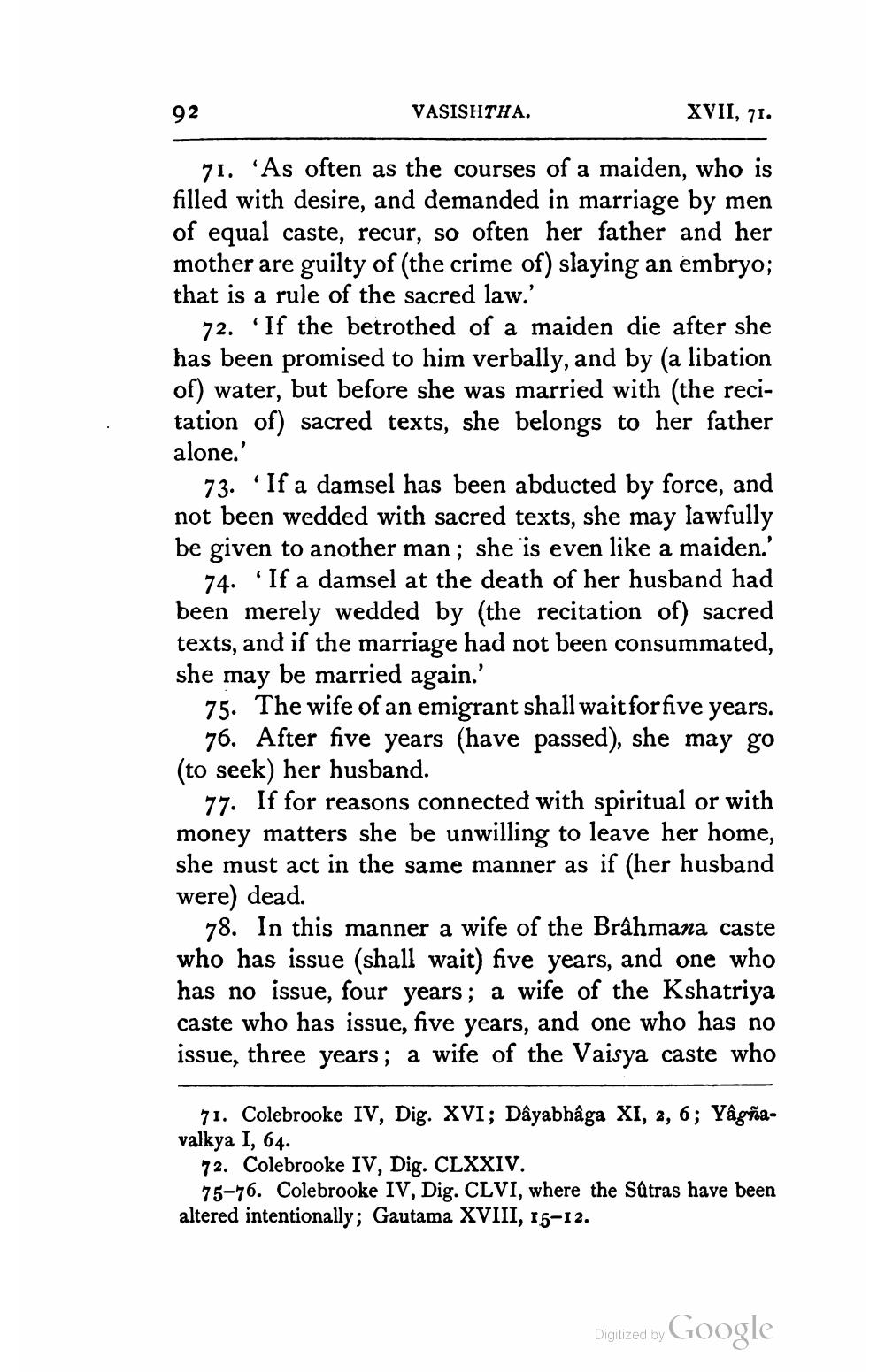________________
92
VASISHTHA.
XVII, 71.
71. 'As often as the courses of a maiden, who is filled with desire, and demanded in marriage by men of equal caste, recur, so often her father and her mother are guilty of the crime of) slaying an embryo; that is a rule of the sacred law.'
72. 'If the betrothed of a maiden die after she has been promised to him verbally, and by (a libation of) water, but before she was married with (the recitation of) sacred texts, she belongs to her father alone.'
73. 'If a damsel has been abducted by force, and not been wedded with sacred texts, she may lawfully be given to another man; she is even like a maiden.'
74. "If a damsel at the death of her husband had been merely wedded by the recitation of) sacred texts, and if the marriage had not been consummated, she may be married again.'
75. The wife of an emigrant shall wait for five years.
76. After five years (have passed), she may go (to seek) her husband.
77. If for reasons connected with spiritual or with money matters she be unwilling to leave her home, she must act in the same manner as if (her husband were) dead.
78. In this manner a wife of the Brâhmana caste who has issue (shall wait) five years, and one who has no issue, four years; a wife of the Kshatriya caste who has issue, five years, and one who has no issue, three years; a wife of the Vaisya caste who
71. Colebrooke IV, Dig. XVI; Dâyabhaga XI, 2, 6; Yâgñavalkya I, 64.
72. Colebrooke IV, Dig. CLXXIV.
75–76. Colebrooke IV, Dig. CLVI, where the Sätras have been altered intentionally; Gautama XVIII, 15-12.
Digitized by Google




